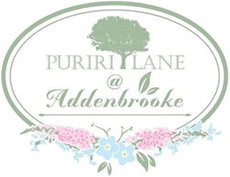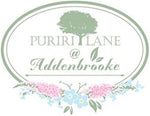Bees have much to teach us, their importance to mankind is beyond measure. Bees (honey bees) are in fact the most studied creature by humans after mankind itself.
Bees are already struggling to cope with the varroa mite. Now they are being threatened by pesticides and a decline in food sources of pollen and nectar.
More and more gardeners are wanting to play their part by providing our bee population with nectar-rich plants and in return the bees will pollinate your flowers, providing a bountiful harvest of fruits, seeds and vegetables and as well as this you can enjoy the delight of watching them as they go busily about their work. Here are some helpful tips to keep in mind as you grow your bee garden:
Our old-fashioned perennials and annuals are just to their liking more so than many of the highly hybridised plants of today.
Plan to plant at least three different types of flowers in your bee garden to ensure as many flowers through as many seasons as possible. This will provide bees and other pollinators with a constant source of food.
Here are a few suggestions:
Spring | borage, calendula
Summer | monarda didyma bee balm - we have a couple of lovely colours, cosmos, echinacea, antirrhinums, foxgloves, and hostas, angelica gigas. Be sure to provide water in summer as well so that they can get a drink. A saucer of water with a twig in it so that they have something to stand on is just perfect
Autumn | Check out our beautiful zinnia collection when they become available in spring along with, asters and solidago that will be a real temptation to bees and foragers
Winter | Bees are not as active in winter but still need flowers from which to get nectar, our pulmonaria is an excellent choice as are the hardy annual cornflowers. Given that bees pollinate nearly one-third of everything we eat, it is important to keep them well fed throughout the seasons

Bees like flowers that make good landing platforms or tubular flowers with nectar at the base – think shasta daisies, achillea, antirrhinums, daucus carota- chocolate kisses, and angelica gigas - pictured left which is a real bee magnet. Many of the new hybrid varieties are bred for showy colour displays but have very little pollen and nectar, so our old style perennials are perfect for the job! See our plants that have the "Perfect for Pollinators" logo on them
Plants with flower spikes are also enjoyed, as the bees can move from flower to flower very quickly – think catnip for bees! lysimachia beaujolais, foxgloves
Blue and yellow are favourite bee colours. Bees can’t see red! See our echium plantagineum available in spring - the bees go crazy for these. We will have lots of other bee food perennials and annuals so be sure to check back in spring.
Whenever possible, try to incorporate native plants into your landscape. Whilst we don't sell them, they are really a must for the garden.
Avoid chemically spraying flowers while the flowers are in bloom as toxins may get into the pollen and nectar and be taken back to the hive where they can cause major destruction. Look for natural alternatives that are equally as effective and not harmful to bees and wildlife, and spray when the bees are less active.
I know that we’ve always been told to get rid of weeds as soon as they surface, but for bees, weeds are good! A lawn full of clover and dandelions is a haven for honeybees (and other native pollinators too); so don’t be worried about letting your lawn and garden go a little bit wild from time to time. Wildflowers, many of which we might classify as weeds, are some of the most important food sources for bees. If you really can't cope with “weeds” try to at least let them flower first for the bees and then before it goes to seed, pull it out or trim it back
Plant plenty of the same type of plants together as planting en masse will attract and encourage the bees to forage. Some bee-friendly plant varieties include dahlias, heliotrope, sage and zinnias
Bees are thirsty wee things and a clean supply of water is absolutely essential for the operation of the colony. Bees use the water for keeping the hive at a constant temperature. Put a dish of water around your garden with a few stones or pebbles in it so that they have something to rest or crawl on whilst having their drink - they will definitely appreciate it!
Please don't forget the Bees, visit the Perfect for Pollinators category for bee-friendly varieties 🐝
Isn't this gorgeous! - I purchased this from Cathy Eliot - Check her out on Etsy or Instagram to see more of her beautiful work






Leave a comment